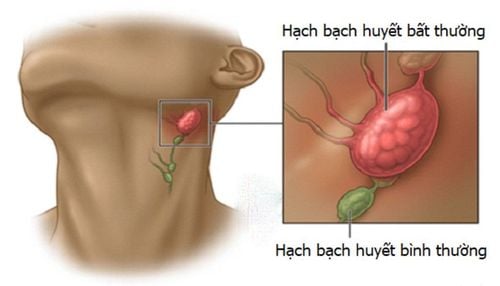Earwax with a foul odor is a warning sign that you may be experiencing an abnormal condition in this organ. So why does earwax have a foul odor, and what should you do when you encounter this condition? Read the following article to find the answer.
1. What is earwax and its function?
Earwax is produced in the outer third of the ear canal. It is a mixture of secretions from the sebaceous glands of the outer ear canal, sweat, dead cells, and dirt. Earwax protects the ear canal, helps clean, lubricate, and fight against bacteria, fungi, water, and other external factors.
There are two genetically determined types of earwax: dry earwax and wet earwax. Wet earwax differs from dry earwax mainly in its higher lipid content.
Normally, earwax is moved from the ear canal to the outside, carrying dead cells and foreign substances that it traps, thanks to the "conveyor belt" process of epithelial migration from the center of the eardrum outward, aided by jaw movements.
2. Why does earwax have an unpleasant odor?
Earwax exists inside the ear canal, and any cause that damages the components inside the ear canal leading to infection can cause earwax to have an unpleasant odor. Some common causes and conditions associated with foul-smelling earwax include:
2.1. Excessive earwax accumulation
In some people, earwax may be produced in excess and cannot be completely moved out by the "conveyor belt" process, leading to the formation of excess earwax. Bacteria and dirt accumulate, causing the ear to have a foul odor.
Additionally, excessive earwax can lead to reduced sound transmission, mild conductive hearing loss, ear pain, headaches, dizziness, and itching.
2.2. Middle ear infection in infants
Middle ear infections, where the child's ear has a foul odor, often occur after a cold, flu, sinus infection, or allergies. In this type of ear infection, fluid is trapped behind the eardrum, causing the middle ear parts to swell and become infected, leading to a foul odor in the infant's ear.
Since infants cannot express their discomfort verbally, parents often notice the foul odor and symptoms such as fever, increased crying, frequent ear pulling, and yellow or white discharge from the ear to recognize abnormal signs in the child's ear.
In toddlers or older children, besides the foul odor, you may also notice signs such as unsteady walking, increased likelihood of falling (due to the ear's role in balance), difficulty hearing, and headaches.
2.3. Middle ear infection in adults
Unlike in children, middle ear infections in adults can be a more serious issue. If you are an adult with a middle ear infection, you should pay attention to your symptoms and see a doctor.
The Eustachian tube in children will develop more fully and reduce the likelihood of middle ear infections as they grow older. However, if you are an adult with a small or less developed Eustachian tube, a habit of smoking, or suffer from seasonal or year-round allergies, these factors can increase the risk of recurrent middle ear infections, progressing to chronic middle ear infections.
Symptoms of middle ear infections in adults are usually mild, such as ear pain, difficulty hearing, discharge from the ear, and a foul odor.
However, if it cannot be completely treated and recurs frequently, it can cause serious complications, such as eardrum perforation, hearing loss, mastoiditis, peripheral facial paralysis, meningitis, encephalitis, cholesteatoma, etc.
2.4. Foul-smelling earwax due to a foreign object in the ear
Foreign objects stuck in the ear can occur in both adults and children. In adults, foreign objects are often insects, while in children, they can be food, toys, small seeds, etc. Symptoms of a foreign object in the ear include:
- Ear pain ranging from mild to severe, depending on the size and type of foreign object
- Reduced or lost hearing
- Ear infection due to damage from the foreign object
- Foul-smelling ear
2.5. Outer ear infection causing foul-smelling earwax
Outer ear infections occur when bacteria or fungi infect the ear canal. It often happens when your ear is in water for a long time. Too much moisture inside the ear can break down the skin on the ear canal walls, making it easier for bacteria and fungi to enter and cause infection.
Symptoms of outer ear infections include mild fever, swollen and red ear, itching, reduced hearing, pus discharge from the ear, and foul-smelling earwax.
2.6. Unpleasant odor due to ear cancer
Ear cancer is quite rare and develops from a chronic infection of the middle ear or outer ear canal and other causes.
Common symptoms of ear cancer include:
- Ear pain
- Discharge from the ear, possibly with blood
- Foul-smelling earwax
- Hearing loss or reduction
- Tumor in the ear, tinnitus, headache, dizziness, facial paralysis
2.7. Cholesteatoma
Cholesteatoma is an abnormal collection of skin cells deep inside your ear, but it is not a malignant condition like cancer. It often occurs after a middle ear infection or due to a congenital defect.
They are quite rare, but if left untreated, they can damage the delicate structures inside the ear necessary for hearing and balance.
A cholesteatoma tumor can cause ear infections with pus discharge, foul-smelling ear, hearing loss, dizziness, or facial nerve damage.
Additionally, you may also experience foul-smelling earwax in other conditions such as ear eczema, ear shingles, mastoid tuberculosis, etc.
3. Measures to address foul-smelling earwax
When experiencing foul-smelling earwax, you should first visit a medical facility to be examined by specialists, identify the cause, and receive appropriate treatment:
- In cases of excessive earwax accumulation or a foreign object in the ear causing symptoms, the earwax and foreign object will be safely removed by specialists. You should not attempt to do this yourself as it may worsen the condition.
- Ear infections, in general, will be treated with antibiotics, pain relief, and ear cleaning if necessary to remove the damaging object and inflammatory fluid. During the treatment period, to allow the ear to fully recover, you should avoid getting water in the ear, using hearing aids, or wearing earphones.
In summary, foul-smelling earwax is often caused by various factors. Regardless of the cause, if the ear has a foul odor accompanied by an abnormal tumor, you should immediately visit a medical facility for timely diagnosis and treatment to avoid serious consequences later.
Please dial HOTLINE for more information or register for an appointment HERE. Download MyVinmec app to make appointments faster and to manage your bookings easily.













